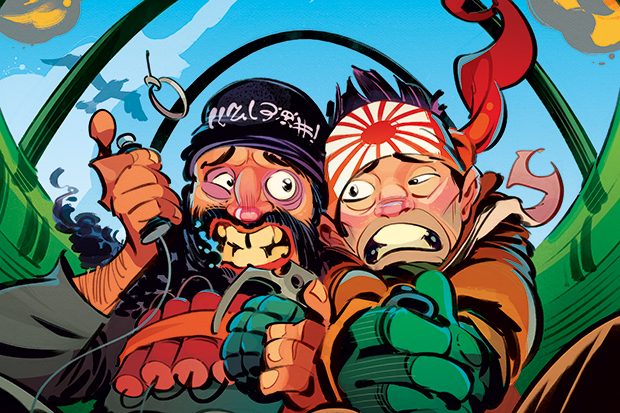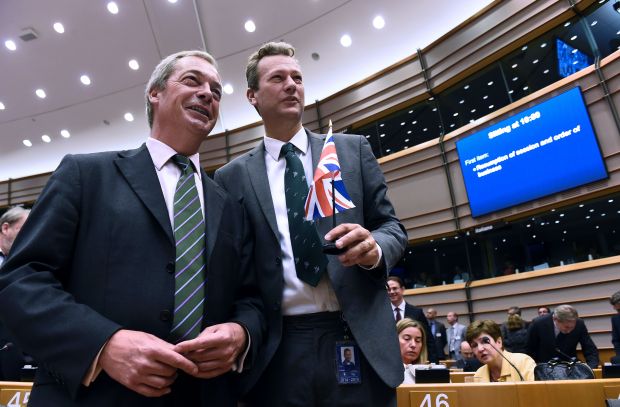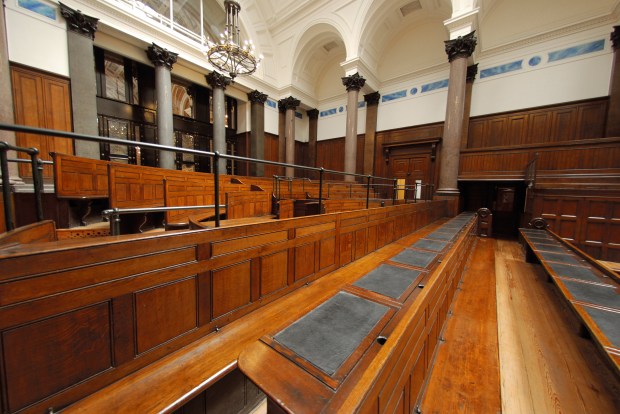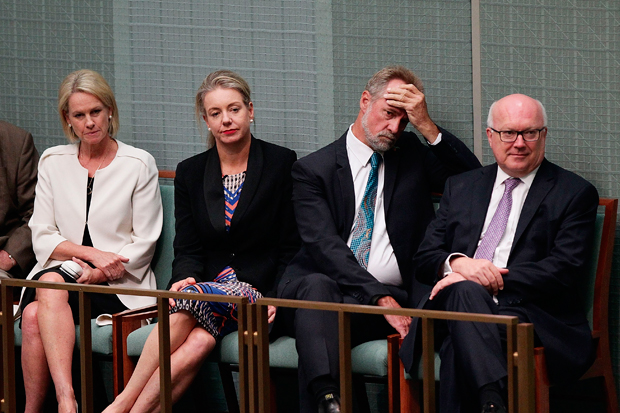At this time of general opprobrium for Britain by the more vociferous officials of the European Union, most particularly Jean-Claude Juncker, President of the Union, accusing David Cameron of ‘cowardice’, it might be the moment to recall periods in history when Britain was looked upon as the saviour of Europe. Just as the Battle of Waterloo freed the Continent from the yoke of Napoleon’s France in 1815, after more than twenty years of struggle by Britain and different allies, so D Day began the campaign that delivered France, Belgium and Holland from Nazi tyranny. Seventy two years ago, British troops were welcomed as deliverers as they swept through France, Belgium and Holland. Should it seem strange to the bureaucrats in Europe that Britain should be just as determined to defend freedom today, despite the cost in material wealth, as she was all those years ago? Britain was the one constant foe of Napoleon through all the different coalitions that tried to defeat him, just as Britain stood completely alone for more than a year after the capitulation of France in 1940 before the United States was attacked by Japan at Pearl Harbour and finally came into the war against Nazi Germany. At neither time did Britain so much as contemplate ceding her sovereignty to a foreign power just as she is refusing to do the same thing now by her decision to leave the European Union.
The union that Britain joined was very different from what it is today. Called the Common Market, it had nine members and was a union for trade only. Today it is composed of 27 disparate countries, several remnants of the Soviet bloc, and its powers have gradually encroached into all realms of its member countries’ lives from trade to industry, social and labour affairs and above all, into subjugation of legal rights to European courts.
Perhaps this is a moment to look back 70+ years, while there are still a few of us left who fought in the Second World War, to remind Europe of Britain’s determination to maintain her independence.
My husband was an Anglo-Argentine volunteer during the war, along with several thousand other young men and women who left their comfortable homes and jobs in the safety of Argentina and Brazil to fight for the country whose blood ran in their veins. He joined the army and became a subaltern in the Welsh Guards in the section known as The Guards Armoured Division. As soon as the beaches were secured and made safe for their heavy vehicles, the Division moved to Normandy where it took part in the protracted Battle of Caen before finally breaking out and spearheading the forces advancing northwards to liberate northern France, Belgium and Holland until forced to halt at Nijmegan. He was an only child and all through the war wrote descriptive letters to his parents back in Argentina, knowing how anxious they would be. They kept his letters carefully and they are still in my possession. Perhaps the most moving one of all was the one he wrote after the liberation of Brussels and the reception by the Brusselloix of the British troops. Because he was with the escort of General Allan Adair, Commander of the Guards Armoured Division, he was standing in the turret of the second tank that rolled into Brussels on that remarkable day:
I wish I could begin to describe the reception we got from the people of both France and Belgium as we swept through their countrysides. We moved 400 miles in nine days and all along the road people crowded, cheering and waving, laughing and crying, with amazed, almost uncomprehending joy and relief. At every halt they crowded round us, showering us with kisses and handshakes, wine and fruit and flowers and flags. Men and women would throw their arms around us, crying ‘Thank you, thank you! Four terrible years we have waited for you, but we knew you would come!’ It has been so wonderful that it still seems like a dream. I don’t suppose that at any time in history have victorious soldiers received such a whole-hearted and spontaneous welcome over such a long period and such a long distance. At first we were a little embarrassed, but soon the atmosphere of joyfulness overcame us and we were waving back enthusiastically…
In his letter, my husband then refers to Brussels itself, the name of the city which has become synonymous with the tyranny of the EU. He sees it differently:
The crowning glory of all was when the Guards Armoured Division entered Brussels. The Belgians there are a charming people and the city is a very beautiful one. There must have been two million people lining the streets as we drove in and the combined, incessant shout of welcome from that continuous sea of smiling, laughing faces brought a lump to the throat until you felt that you couldn’t bear it any longer. It has been unforgettable, the greatest experience, the richest reward for all these years of preparation and training. People threw flowers as we went through the streets, but perhaps my own most moving moment was when an old lady reached up to me in my tank, holding one precious egg in her hand to give to me. Perhaps the only gift she had to show her gratitude.
As we are celebrating anniversaries of so many of the battles of the Great War, his next paragraph is pertinent:
There was one other experience of this advance which especially impressed some of us older ones. It was the move across the terrible battlefields of 1914-1918. The Somme, the Aisne, Arras, Vimy Ridge, Douai and scores of other localities where so many had died in ‘the war to end wars’. For four years the same Allies had struggled with the same enemy. This time we crossed that flat and ugly land in less than four days! The ghosts of the million dead seemed to be all around us. The rain came teeming down… as we harboured for the night just outside Arras. It needed very little imagination to picture that unfriendly landscape turned into a shell-torn hell, zigzagged with trenches. Well, this time that land was spared and you could see the quiet look of relief on the faces of the old people standing bareheaded on the cobbled streets of their ugly, red brick villages.
Perhaps it behoves EU officials to pause and ponder before sending more barbs across the Channel. Rather than resenting the British people’s decision, they should remember that Britain has always been prepared to stand up for her right to her principles and her sovereignty, no matter what forces have been ranged against her, whether they be of Napoleon or of Germany. They have shown this once again in their vote for Brexit.
A very different danger, but the same response.
The post Letters from my husband appeared first on The Spectator.
Got something to add? Join the discussion and comment below.
You might disagree with half of it, but you’ll enjoy reading all of it. Try your first month for free, then just $2 a week for the remainder of your first year.













